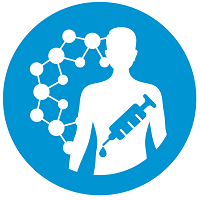Preclinical, Clinical and Translational Sciences
Summarizing the Most Promising Biomarkers to Inform on DDI Magnitude
Monday, October 21, 2024
9:30 AM - 10:00 AM MT
Location: 251 DE

Sibylle Neuhoff, PhD (she/her/hers)
Senior Scientific Advisor & Deputy Head of Translational Sciences (DMPK)
Certara Predictive Technologies
Sheffield, England, United Kingdom
Speaker(s)
Within the sphere of ADME, naturally occurring endogenous molecules that are selective, specific, and sensitive to perturbation when an enzyme or transporter function is modulated by a perpetrator drug can potentially serve as biomarkers. A disturbance in the steady-state or baseline endogenous molecules plasma or urinary levels can indicate alterations in metabolising enzyme or transporter function, hence approaches to monitor their levels in early clinical trials can inform on the potential for DDI risk operating via the protein characterized by the biomarker. Furthermore, it is long established that surveillance of biomarker molecules can indicate the presence and progression of disease, therefore within drug development, it is applicable to consider biomarkers within the context of ADME and therapeutic area, with a focus on the patient and clinical care surrounding the case.
This presentation will cover the most promising biomarkers that have the capacity to probe for perturbations in enzyme and transporter mediated function. Examples will be provided to cover biomarkers in clinical use to probe for DDIs relating to hepatic (e.g., OATP1B transport proteins) and renal transporters (e.g., OCT2 and MATEs), and metabolizing enzymes (CYP3A) whilst noting links to clinical practice.
This presentation will cover the most promising biomarkers that have the capacity to probe for perturbations in enzyme and transporter mediated function. Examples will be provided to cover biomarkers in clinical use to probe for DDIs relating to hepatic (e.g., OATP1B transport proteins) and renal transporters (e.g., OCT2 and MATEs), and metabolizing enzymes (CYP3A) whilst noting links to clinical practice.
Learning Objectives:
- Upon completion, participant will be able to describe the establishment of endogenous molecules as potential biomarkers of transporter and metabolizing enzyme function.
- Upon completion, participant will be able to describe the application of biomarker evaluations to inform on the potential risk for DDI potential of transporters and metabolizing enzymes using an IVIVE-PBPK approach.
- Upon completion, participant will be able to describe in brief how biomarkers can be utilized in in the clinical setting to evaluate the presence disease and it's progression.

